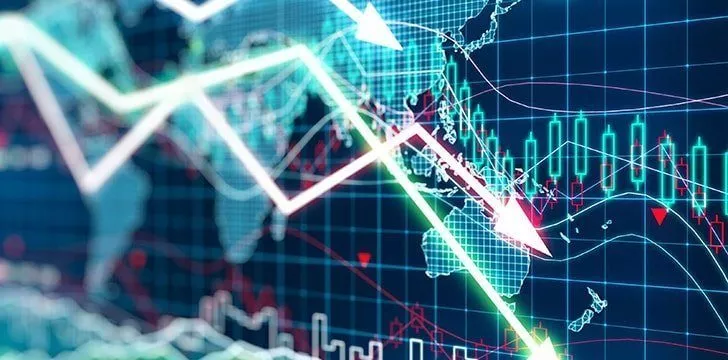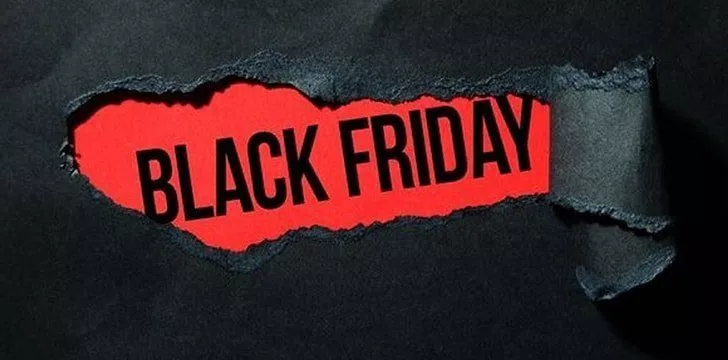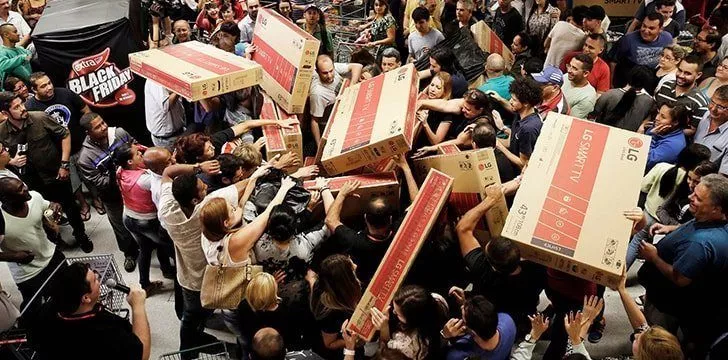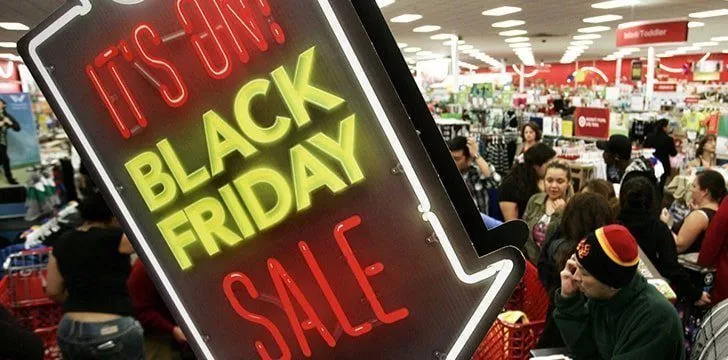Did you know that during the 1800s, the term Black Friday was used to describe stock market crashes?
You may have heard about the madness surrounding Black Friday, but it’s about to get even crazier!
Black Friday marks the beginning of the largest shopping weekend of the year, featuring incredible deals, discounted TVs, and people who behave like they’re insane!
Here are the top 10 facts about the unique tradition of Black Friday!
- The term “Black Friday” was originally used in reference to stock market crashes in the 1800s.
- The precursor to Black Friday was the Santa Claus parades.
- Black Friday is the busiest day of the year for plumbers.
- Holiday shoppers indirectly determined the date for Thanksgiving.
- Black Friday was once referred to as “Big Friday.”
- Black Friday was not officially recognized as the busiest shopping day of the year until 2001.
- Black Friday has expanded to more than 15 countries worldwide.
- In Mexico, it is known as “El Buen Fin,” which means “the good weekend.”
- In 2011, Walmart broke the Black Friday tradition.
- 12% of Black Friday shoppers are intoxicated.
- FAQ
The term “Black Friday” was originally used in reference to stock market crashes in the 1800s.

The term was first used on September 24, 1869, when James Fisk and Jay Gould attempted to corner the gold market on the NYSE.
However, the government intervened and flooded the market with gold, causing prices to plummet and many investors to lose their fortunes.
The precursor to Black Friday was the Santa Claus parades.

The Macy’s Thanksgiving Day Parade has become a part of holiday season rituals in America over the years.
However, the first “Santa Claus parade” was held on December 2, 1905, in Canada.
When Santa appeared at the end of the parade, it was a signal to officially kick off the holiday season.
American stores took the lead and began having similar parades all across the United States.
The premier Macy’s Thanksgiving Day Parade was held in 1924.
The parade was organized by Macy’s employees and featured some of the animals from Central Park Zoo.
Black Friday is the busiest day of the year for plumbers.

As strange as it may seem, CNN reported that plumbers are needed to clean up after guests “overwhelm the system.”
Holiday shoppers indirectly determined the date for Thanksgiving.

From the mid-19th to the early 20th century, the US president would declare a “day of giving thanks” on the last Thursday in November.
This changed in 1939 when the last Thursday was the last day of the month.
Retailers were concerned that the holiday season would be shortened and therefore petitioned the president to move the holiday one week earlier.
In 1941, Congress passed a joint resolution to clear up the confusion.
After that, Thanksgiving was always celebrated on the fourth Thursday in November, giving shoppers one extra week to shop before Christmas.
Black Friday was once referred to as “Big Friday.”

According to a 1975 report from the NY Times, the term “Black Friday” originated in Philadelphia slang.
Police had become frustrated with the traffic congestion caused by shoppers on that day, and retailers were unhappy to be associated with traffic and smog.
So in 1961, one newspaper attempted to rename the day “Big Friday,” but as you already know, this term did not catch on.
Although it had been popular in Philadelphia, “Black Friday” was not an official national term until the 1990s.
Black Friday was not officially recognized as the busiest shopping day of the year until 2001.

Although it was considered the largest shopping day of the year, it was actually the Saturday before Christmas that outperformed it every year until 2001.
Black Friday has expanded to more than 15 countries worldwide.

For many years, Canadian retailers were concerned when their customers went to the US on Black Friday in search of great deals, which prompted them to begin their own Black Friday sales.
Since then, many other places in the world have adopted this tradition, including the UK, Brazil, India, France, Norway, and many more…
In Mexico, it is known as “El Buen Fin,” which means “the good weekend.”

This is actually linked to the anniversary of the 1910 Mexican Revolution, which sometimes coincides with American Thanksgiving. El Buen Fin lasts the entire weekend rather than just one day.
In 2011, Walmart broke the Black Friday tradition.

The tradition of Black Friday shopping was disrupted when Walmart opened its doors on Thanksgiving evening. Since then, retailers have been racing against the clock to keep up with the times.
Nowadays, 33 million Americans plan to start shopping as soon as they finish their Thanksgiving dinner. This is known as Gray Thursday.
12% of Black Friday shoppers are intoxicated.

According to a survey conducted by the coupon site RetailMeNot, 12% of all Black Friday shoppers admit to shopping under the influence of alcohol.
Well, there you have it – ten facts about Black Friday! If you dislike the chaos of Black Friday, don’t worry; Cyber Monday is becoming more popular, with millions of shoppers ready to click “add to cart” when the product they’re watching goes on sale.
Whether you prefer Gray Thursday, Black Friday, or Cyber Monday, this weekend is truly the biggest shopping weekend of the year.
FAQ
1. What is Black Friday?
Black Friday is the day after Thanksgiving in the United States, and it marks the beginning of the Christmas shopping season. It is a day when retailers offer huge discounts on their products, and people often wait in long lines and camp outside stores in order to get the best deals.
2. Why is it called Black Friday?
The term “Black Friday” originated in Philadelphia in the 1960s, where it was used to describe the heavy traffic and chaos that occurred on the day after Thanksgiving. Later, the term was used to describe the huge profits that retailers made on this day, which put their finances “in the black”.
3. How much money do people spend on Black Friday?
In recent years, people have spent billions of dollars on Black Friday. In 2019, shoppers spent a record $7.4 billion online on Black Friday, and $4.2 billion in stores. On average, shoppers spent $361.90 on Black Friday in 2019.
4. What are some of the dangers of Black Friday?
There have been reports of injuries and even deaths on Black Friday, as people rush to get the best deals. In 2008, a Walmart employee was trampled to death by a crowd of shoppers. In 2011, a woman at a Walmart pepper-sprayed other shoppers in order to get to a discounted Xbox.
5. How has Black Friday changed over the years?
Black Friday used to be a one-day event, but in recent years, it has expanded into a week-long shopping event. Many retailers now offer Black Friday deals online, which has led to a decrease in the number of people who go to physical stores on Black Friday.
6. Is Black Friday worth it?
Whether or not Black Friday is worth it depends on the individual shopper. While there are certainly good deals to be found on Black Friday, there are also risks involved, from the danger of crowds to the possibility of overspending. Ultimately, it is up to each person to decide whether the potential savings are worth the hassle.

Zayn Anderson is a prolific writer with a passion for uncovering the world’s intriguing facts. Armed with an insatiable curiosity, he delves into various subjects, from history and science to nature and technology.
